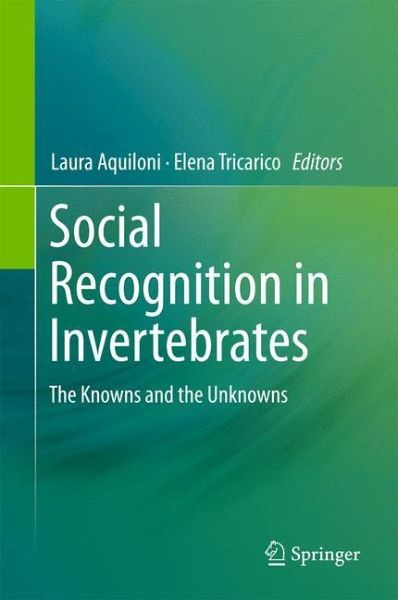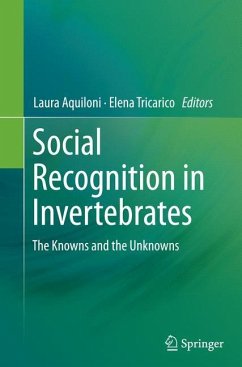
Social Recognition in Invertebrates
The Knowns and the Unknowns
Herausgegeben: Aquiloni, Laura; Tricarico, Elena

PAYBACK Punkte
38 °P sammeln!
This book uses a wide range of case studies from different invertebrate taxa to describe the numerous forms of social recognition occurring in this large group of animals and traces the evolution of this cognitive ability. The authors provide several examples of direct (i.e. the target of recognition is a conspecific) and indirect recognition (i.e. recognition of a reliable proxy rather than an individual, such as a den or a substrate) and discuss cases of familiar recognition (i.e. an animal remembers a conspecific but cannot tell what class it comes from or recognize its identity). Class-lev...
This book uses a wide range of case studies from different invertebrate taxa to describe the numerous forms of social recognition occurring in this large group of animals and traces the evolution of this cognitive ability. The authors provide several examples of direct (i.e. the target of recognition is a conspecific) and indirect recognition (i.e. recognition of a reliable proxy rather than an individual, such as a den or a substrate) and discuss cases of familiar recognition (i.e. an animal remembers a conspecific but cannot tell what class it comes from or recognize its identity). Class-level recognition (i.e. an animal assigns a conspecific to an appropriate class of animals), and true individual recognition (i.e. an animal both identifies and recognizes a conspecific on an individual basis) are also addressed.













